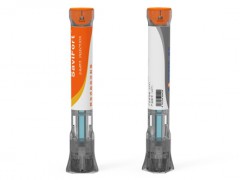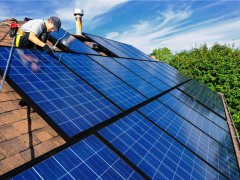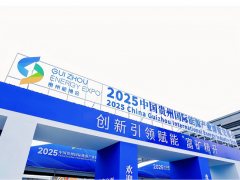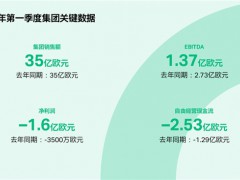· 2021年对欧佩克+来说是充满挑战的一年,油价开始回升,带来了难以抗拒的诱惑
· 欧佩克+采取了克制,尽管全球能源价格飙升,但仍拒绝放开限产
· 由于世界朝着更加绿色的明天前进,欧佩克+的官员指出,如果管理不善,能源转型可能会导致石油和天然气投资不足,这可能意味着更高的油价
据美国彭博新闻社2021年12月31日报道,欧佩克+在过去两年中做了一些令人惊讶的事情。 首先,在疫情爆发之初,沙特阿拉伯和俄罗斯两国领导人在如何应对危机的问题上存在意见分歧,随后,这两个国家达成和解,并在欧佩克历史上最大规模的减产行动中团结起来,以应对疫情造成的需求破坏,这也是前所未有的。
总之,2020年是发生史无前例事件的一年。
但2021年并没有太大不同。 这对欧佩克+来说2021年是一个挑战之年,因为油价开始回升,呈现出一种难以抗拒的诱惑,特别是对海湾地区和非洲大陆那些最依赖石油的经济体来说。 然而,他们还是坚持了增产计划,每月增加40万桶/天的原油产量。
这个增产计划如今仍在实施,至少要延续到2022年1月,届时欧佩克+可能会重新考虑原油生产计划,因为一些分析师警告称,石油供应过剩迫在眉睫。 欧佩克的分析师并不在其中——该卡特尔预计,奥密克戎冠状病毒对需求的影响将是温和和暂时的。 但过去两年,欧佩克已经证明,它可以保持谨慎。
美国彭博新闻社的朱利安•李日前曾提醒我们,自欧佩克+成立以来,这个扩大了的卡特尔就一直面临着艰巨的任务。 从一开始,欧佩克成员国为了应对美国的页岩热潮而决定减产,到2021年,在一波又一波的新冠肺炎疫情中,欧佩克+不得不灵活应对生产,这5年对欧佩克+来说是充满挑战的5年。
鉴于各成员国的优先事项往往不同,这种合作具有挑战性是意料之中的事。 然而,这一政策在某种程度上还是奏效了,尽管在前进的道路上有一些磕磕绊绊,比如伊拉克无法坚持其生产配额,为此伊拉克不得不受到额外削减配额的“惩罚”。 这很可能使这个集团对未来的任何冲击都更有弹性。
分析师表示,欧佩克+面临的第一个挑战将是供应过剩。 然而,这不会是一个很大的挑战,因为这种挑战被视为是暂时的,它只会持续到奥密克戎毒株过去,并假设它会像之前的几波一样糟糕,这是不太可能的,因为一个非常务实的原因:大多数政府无法承担得起又一次长期封锁。
正如石油行业观察人士和欧佩克成员国指出的那样,一个更大的挑战是备用产量供应的减少。 根据美国能源信息署(EIA)的数据,欧佩克2022年最后一个季度的备用产量供应可能降至511万桶/天。 这一数字将大大低于2021年第一季度的900万桶/天。
美国EIA对备用石油产能的定义是:可以在30天内开始生产,并且产能持续至少90天。 国际能源署(IEA)对备用石油产能定义为可以在90天内启动生产。
无论定义如何,全球的备用石油生产能力正在下降,因为它不是一个静态的石油池。未开采的油藏往往会减少资源,这就是为什么当疫情扼杀需求时,那么多石油生产商不愿开始封井的一个重要原因。 一旦你封堵了一口井,此井以后复产可能性不确定。
说到封井,这可能是俄罗斯现在接近其石油生产能力极限的部分原因,而且石油产能比疫情前低得多。 此前,俄罗斯的日产量在1100万桶以上。
现在,路透社援引俄罗斯石油公司的一篇报道称,俄罗斯石油日总产量已接近1090万桶的产能,尽管俄罗斯副总理诺瓦克曾表示,俄罗斯的石油日产量将在5月份反弹至1133万桶。
因此,全球大部分的备用石油产能将在欧佩克,更准确地说在中东地区,但即使是这些备用石油产能也需要维护,而维护就意味着投资。 如今,石油生产方面的投资越来越难获得。
沙特阿拉伯能源大臣阿卜杜勒-阿齐兹·本·萨勒曼12月早些时候曾表示:“如果在能源方面没有足够的支出,我们可能会进入一个危险的阶段。” 印度财政部长穆罕默德·贾达安也表达了同样的看法,他说:“我们非常担心,如果我们不能谨慎掌控转型期,世界可能会出现能源短缺。”
对石油生产投资不足发出警告的不仅仅是沙特阿拉伯。 IHS Markit的丹尼尔·耶金说,由于石油和天然气投资不足,世界正把自己拖进一系列能源危机的角落。 众所周知,美国石油公司优先考虑的是向投资者返还现金,而不是产量增长,而大型石油公司却在向低碳能源领域投入数十亿美元,以洗刷自己的声誉。
所有这一切意味着,在能源安全方面,世界可能会面临更艰难的几年,特别是在部分地区。 另一方面,由于纯粹的基本原因,石油供应仍然紧张,欧佩克+可能会获得更多的暴利。 当然,如果疫情继续给我们带来震惊,总有可能出现另一个需求破坏事件,但欧佩克+已经在那里,并已经这样做了。欧佩克+会生存下来,甚至可能变得更强。
李峻 编译自 美国油价网
原文如下:
2022 Could Be A Great Year For OPEC+ Producers
· 2021 was a challenging year for OPEC+ as prices began to recover, presenting a temptation that has always been difficult to resist.
· OPEC+ exercised restraint, however, refusing to open the taps even as energy prices skyrocketed across the globe.
· As the world races towards a greener tomorrow, OPEC+ officials have noted that the energy transition, if not managed well, could lead to underinvestment in oil and gas, which could mean even higher prices. 、
· OPEC+ did some surprising things in the past two years. First, it broke up at the start of the pandemic with its two leaders—Saudi Arabia and Russia—turning on each other because of differences of opinion on how the crisis needed to be handled. Then the two made up, and the group united around the deepest production cuts in the history of OPEC in response to the demand destruction caused by the pandemic, also unprecedented.
· All in all, 2020 was a year of unprecedented events.
· But this year was not that much different. It was a challenging one for OPEC+ as prices began to recover, presenting a temptation that has always been difficult to resist, especially for the most oil-dependent economies in the Gulf and Africa. And yet resist they did, sticking to a production increase plan seen adding 400,000 bpd in combined oil production every month.
This plan is still in action, at least until January, when OPEC+ may reconsider as some analysts warn of looming oil oversupply. OPEC's analysts are not among these—the cartel expects a mild and temporary effect on demand from the omicron variant of the coronavirus. But the cartel has proved in the past two years that it could be cautious.
Bloomberg's Julian Lee earlier this week reminded us that ever since its inception, the extended OPEC+ cartel has had its work cut out for it. From the very beginning, when members decided to reduce production in response to the U.S. shale boom, to this year, when they had to be flexible with production amid wave after wave of Covid-19 infections, it's been a challenging five years for OPEC+.
The challenging nature of the cooperation was only to be expected given the often different priorities of member states. And yet it somehow worked, even with bumps along the road such as Iraq's inability to stick to its production quotas, for which it had to be "punished" by getting additional cut quotas. And this may well have made the group more resilient to any future shocks.
According to analysts, the first challenge would be excess supply. It would not be much of a challenge, however, as it is seen as temporary, only until the omicron wave passes, and assuming it would be as bad as previous waves, which is a bit unlikely for a very pragmatic reason: most governments cannot afford another long lockdown.
A much bigger challenge, as noted by oil industry observers and OPEC members, is dwindling spare production supply. According to the U.S. Energy Information Administration, OPEC's spare capacity could fall to 5.11 million bpd in the final quarter of next year. This is down from 9 million bpd in the first quarter of 2021.
The Energy Information Administration defines spare oil production capacity as oil production that can be started within 30 days and sustained for at least 90 days. The International Energy Agency defines spare capacity as production that can be cranked up in 90 days.
Whatever the definition, the world's spare oil production capacity is falling because it is not a static pool of oil. Oil reservoirs that are not exploited tend to diminish in resources—one big reason why so many oil producers were reluctant to start plugging wells when the pandemic killed demand. once you plug a well, it may or may not return to full or any production.
Speaking of plugging wells, these may well be part of the reason Russia is now near its capacity of producing oil, and it's a much lower level than before the pandemic. Before, Russia was pumping north of 11 million bpd.
Now, according to a Reuters report citing Russian oil companies, total output is nearing capacity at 10.9 million bpd, even though Deputy PM Alexander Novak has argued Russia's oil production will rebound to 11.33 million bpd by May.
Most of the spare capacity, therefore, will be in OPEC, and more precisely, in the Middle East. But even that spare capacity needs maintenance, and maintenance means investment. And investments in oil production are getting harder to come by these days.
"We're heading toward a phase that could be dangerous if there's not enough spending on energy," Saudi Arabia's Energy Minister Prince Abdulaziz bin Salman said earlier this month. The sentiment was echoed by Finance Minister Mohammed Al-Jadaan: "We have very serious concerns that the world could run short of energy if we are not careful in managing the transition."
It's not just the Saudis that are warning about underinvestment, either. IHS Markit's Daniel Yergin said the world is painting itself into a corner featuring a series of energy crunches because of insufficient investment in oil and gas. And it's public knowledge that U.S. oil companies are prioritizing returning cash to investors rather than production growth while Big Oil is pouring billions in low-carbon energy to clean up its reputation.
What all this means is that the world may be in for a few more tough years in terms of energy security, especially parts of it. OPEC+, on the other hand, may be in for some more windfall profits as the supply of oil remains tight for purely fundamental reasons. Of course, there is always the possibility of another demand destruction event in case the pandemic continues to surprise us, but OPEC+ has already been there and has done that. It will survive and maybe even become stronger.
免责声明:本网转载自其它媒体的文章,目的在于弘扬石化精神,传递更多石化信息,并不代表本网赞同其观点和对其真实性负责,在此我们谨向原作者和原媒体致以敬意。如果您认为本站文章侵犯了您的版权,请与我们联系,我们将第一时间删除。







